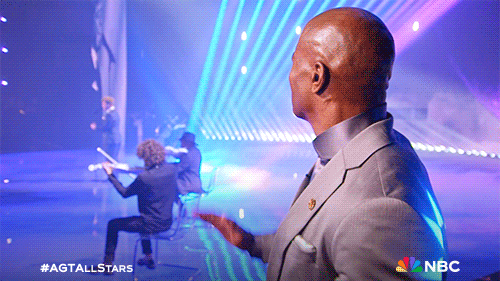The creative high of Denis Villeneuve’s Dune: Part Two (or even the first part) is how he creates this vast world of space politics without too much exposition. I am someone who has not read the source material, and Villeneuve’s movie version of Frank Herbert’s novel was my first encounter with this future world full of characters and intricate power dynamics. Rather than enthralling you with moments of grandeur, Villeneuve uses the scale and world to make sure you will think about the psyche of characters and the parallels of the concepts in our real lives.
Part Two kicks off with Paul and Jessica joining the Fermens, and as the Fermen Reverend Mother is dying, Jessica takes up that role at the request of Stilgar. With the news about human activity in Arrakis increasing and the attack on several Harkonnen machinery, the Emperor becomes upset, and the Baron has new plans for Arrakis with his nephew Feyd-Rautha Harkonnen. With Paul evolving closer to the prophecy with each step he took, what we see in Dune: Part Two is the boy going against the system.
As I said, it is the lingering thoughts about the characters, their evolution, what they could possibly do in the future, etc., that make this movie extremely absorbing. Villeneuve’s vision is to make the world we see on screen believable through the human emotions it has. He prefers a storytelling style that puts the audience abruptly in the middle of the action. You are sort of discovering each character as a pure onlooker who figures out about each character, their past, and their intentions from the minimal details you get from the lines they say.
Denis Villeneuve is using the spectacular visuals of the movie to make things a lot more dry and real. The greyness of all the drama unfolding in the story is kind of evident in the way he has chosen the color palettes for each episode. The emperor, who is sitting in a comfortable space, is the only one presented with a natural-looking flat light setup. Arrakis is shown in warm tones for obvious reasons, and the world and world-view of Harkonnen have this paled-out black-and-white visual language. The pacing is on the slower side, but it really gives you enough time to register each character. The set pieces are designed and edited brilliantly, and the sound design enhances the rawness of those moments. Hans Zimmer’s music is nothing short of fantastic in projecting the peak of those wide-angle shots. What really works and stays with you after the film is the drama, and Villeneuve has managed to give the viewer a flowchart of the complex dynamics between the characters.
Timothée Chalamet, as Paul Atreides, who was pretty much a confused young man in Part One, gets to play the evolution of his character into this powerful leader. From being that humble outsider to gradually becoming a threatening force, Chalamet performed his part brilliantly. Zendaya, as Chani, has more screen time in Part Two, and since she is a rebellious soul who doesn’t believe in these prophesies and stuff, her typical dismissive anger suits this part, and Chani’s dissent looks real on screen. Rebecca Ferguson, as Jessica, is more in a selfish and wicked space in Part Two, and the actress was really good at it. Austin Butler, as Feyd-Rautha Harkonnen, is one of the major new characters in the second part, and as the psychopathic villain, he was convincing on screen. Christopher Walken played the part of the Emperor, while Florence Pugh portrayed the role of his daughter, Princess Irulan. Josh Brolin, Javier Bardem, Stellan Skarsgård, and Dave Bautista reprised their roles from the previous part, while Léa Seydoux and Anya Taylor-Joy joined the cast in new roles that may have a major part in future installments.
The world of Dune has these similarities with franchises like Star Wars and series like Game of Thrones. Just like them, a lot of what makes Dune a compelling watch is the way it constructed its world and its nuances, culture, politics, drama, etc. The open ends you can sense at the ending of Dune: Part Two are placed so enticingly that you feel like having a fan conversation with someone about the grey possibilities of how the characters may evolve going ahead.
Rather than enthralling you with moments of grandeur Villeneuve uses the scale and world to make sure you will think about the psyche of characters and the parallels of the concepts in our real lives
Green: Recommended Content
Orange: The In-Between Ones
Red: Not Recommended


